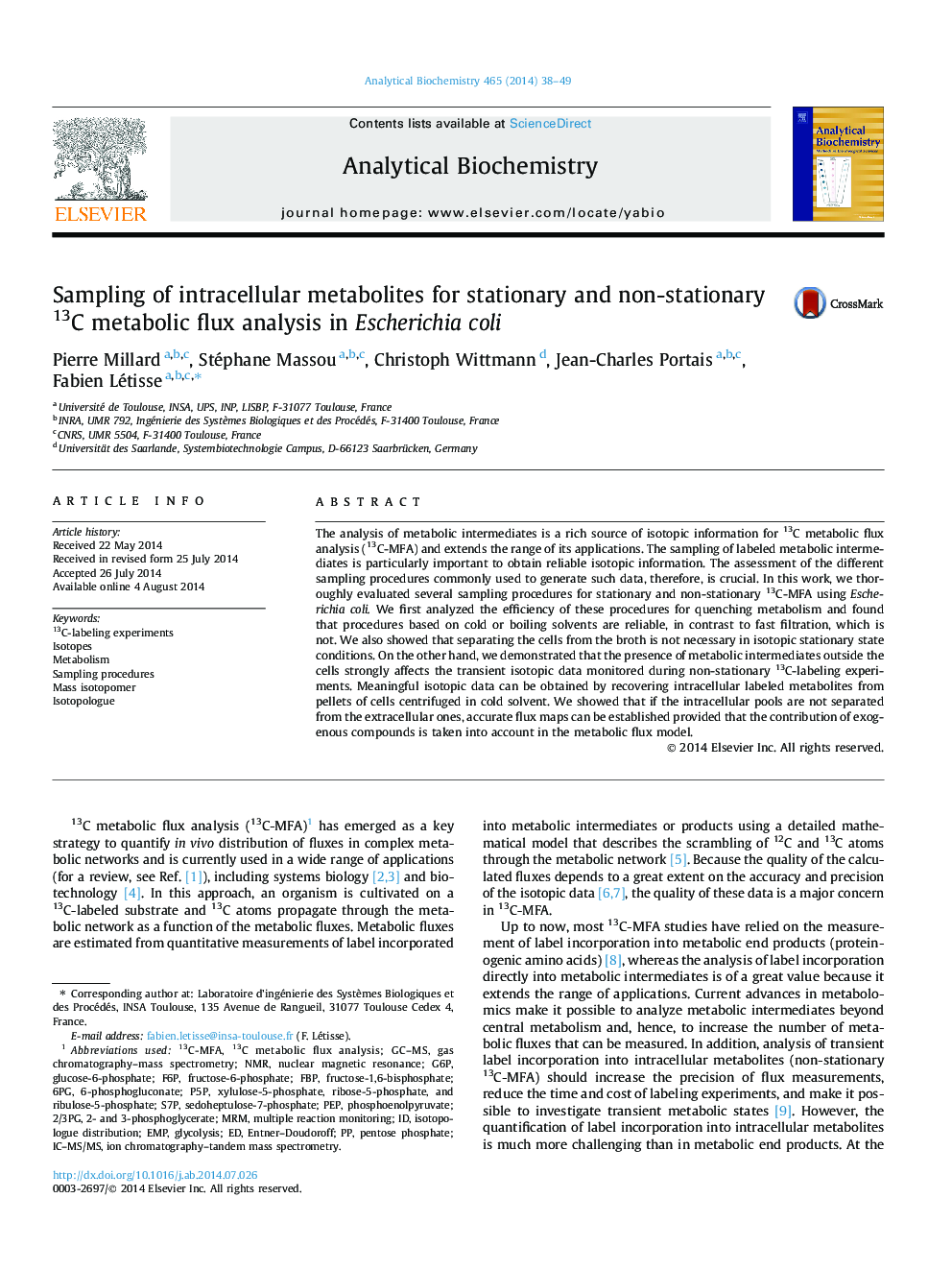| Article ID | Journal | Published Year | Pages | File Type |
|---|---|---|---|---|
| 7559009 | Analytical Biochemistry | 2014 | 12 Pages |
Abstract
The analysis of metabolic intermediates is a rich source of isotopic information for 13C metabolic flux analysis (13C-MFA) and extends the range of its applications. The sampling of labeled metabolic intermediates is particularly important to obtain reliable isotopic information. The assessment of the different sampling procedures commonly used to generate such data, therefore, is crucial. In this work, we thoroughly evaluated several sampling procedures for stationary and non-stationary 13C-MFA using Escherichia coli. We first analyzed the efficiency of these procedures for quenching metabolism and found that procedures based on cold or boiling solvents are reliable, in contrast to fast filtration, which is not. We also showed that separating the cells from the broth is not necessary in isotopic stationary state conditions. On the other hand, we demonstrated that the presence of metabolic intermediates outside the cells strongly affects the transient isotopic data monitored during non-stationary 13C-labeling experiments. Meaningful isotopic data can be obtained by recovering intracellular labeled metabolites from pellets of cells centrifuged in cold solvent. We showed that if the intracellular pools are not separated from the extracellular ones, accurate flux maps can be established provided that the contribution of exogenous compounds is taken into account in the metabolic flux model.
Related Topics
Physical Sciences and Engineering
Chemistry
Analytical Chemistry
Authors
Pierre Millard, Stéphane Massou, Christoph Wittmann, Jean-Charles Portais, Fabien Létisse,
